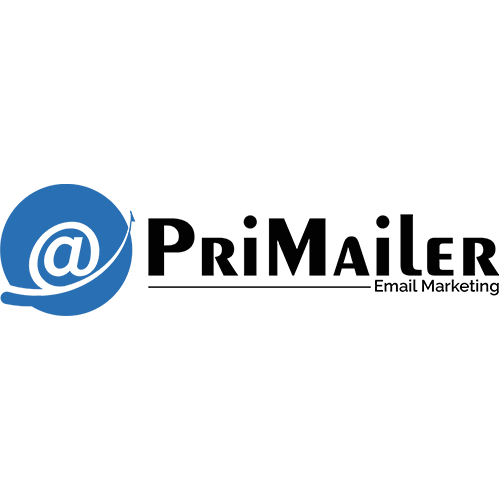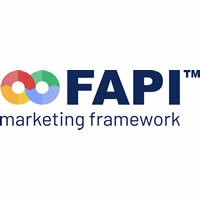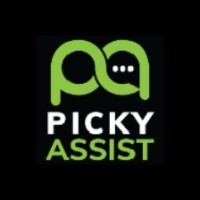What Is Marketing Planning Software?
Marketing planning software is a digital application that helps firms create, organize, and implement their marketing plans. This program is specifically developed to simplify the process of creating marketing plans, allowing businesses to reach their target audience, raise brand awareness, and ultimately drive sales. At its core, marketing planning software is a powerful tool that enables firms to map out their marketing objectives, identify their target audience, and plan the measures necessary to achieve them.
This program includes capabilities such as market research, budget management, campaign management, and performance tracking to assist organizations in developing effective and data-driven marketing strategies. One of the primary advantages of using marketing planning software is that it provides firms with a single platform for all of their marketing efforts.
This eliminates the need for various spreadsheets and papers, allowing teams to cooperate and work more efficiently to achieve a common goal. Furthermore, marketing planning software often includes built-in marketing templates and frameworks, which saves organizations hours of time when developing a strategy from start.
These templates are frequently modifiable, allowing firms to tailor their strategies to their individual aims and target audience. In addition, marketing planning software has powerful analytics and reporting functions that provide firms with vital insights into the efficacy of their marketing campaigns. This information can then be used to make educated decisions and modify strategies to get better results.
When choosing marketing planning software, it is critical to check for features such as ease of use, interoperability with other business tools, and scalability to handle corporate expansion. Businesses that use the appropriate marketing planning software can save time and resources while also achieving their marketing objectives more efficiently.
What Are The Recent Trends In Marketing Planning Software?
Marketing planning software is an essential tool for organizations of all sizes to properly strategize and execute their marketing goals. With quick technological breakthroughs and a highly competitive market, the marketing planning software landscape is continuously changing. To make an informed decision, a buyer must stay up to date on the latest trends in this sector.
Here are the most recent marketing planning software trends that you should be aware of:
1. Integrating Artificial Intelligence (AI): One of the most significant trends in marketing planning software is the use of AI-powered features. These powerful algorithms allow firms to examine large amounts of data fast and correctly, resulting in more effective marketing campaigns. From automated data analysis to personalized content generation, AI is changing the way firms plan and execute marketing initiatives.
2. Real-Time Data Tracking And Reporting: Gone are the days of manual data collection and reporting. The latest marketing planning software has real-time tracking and reporting functions, allowing firms to track the performance of their campaigns in real time. This saves time and enables for fast adjustments to ensure the campaign's success.
3. Emphasis On Client Data Privacy: As data privacy issues grow, marketing planning software is emphasizing the importance of securing client data. This involves adhering to regulations such as GDPR and CCPA, as well as using secure data storage and transport techniques.
4. Increased Omnichannel Capabilities: In today's digital world, organizations must maintain a strong presence across numerous channels. Marketing planning software is improving its features to allow for the seamless integration and control of all marketing initiatives, such as social media, email, and search.
5. Migration To Cloud-Based Solutions: Cloud-based marketing planning software is gaining popularity due to its ease of use, scalability, and cost-effectiveness. Businesses can now access their marketing strategies and data from anywhere in the world, allowing teams to communicate and operate remotely. Staying up to date on these recent developments will allow you to make an informed decision when selecting marketing planning software for your organization.
To select the best option, consider any special features and functionalities that are relevant to your business's objectives and goals. With the correct marketing planning software, you can streamline your marketing efforts and get tangible benefits for your company.
Benefits Of Using Marketing Planning Software
Marketing planning software is a useful tool for helping organizations plan and execute their marketing initiatives. This software has numerous advantages for firms of all sizes because it streamlines and automates key areas of the planning process.
Here are the main advantages of adopting marketing planning software:
1. Improved Efficiency: One of the primary benefits of adopting marketing planning software is enhanced efficiency. This program allows firms to save time and effort by automating operations like scheduling, content generation, and social media posting. This enables marketing teams to focus on more important duties, resulting in increased productivity.
2. Data-Driven Decisions: Marketing planning software provides useful insights and analytics, allowing firms to make data-driven decisions. By measuring important metrics and performance indicators, organizations may assess the success of their initiatives and make changes to improve outcomes.
3. Improved Collaboration: Marketing planning software enables team members to collaborate more effectively, even when they are not physically present. This program enables real-time communication, file sharing, and project management, making it easier for teams to collaborate and achieve their objectives.
4. Cost Savings: Traditional marketing strategies can be expensive, and many firms struggle to stay under their budget. Marketing planning software provides economical choices for organizations of all sizes, helping them to save money on advertising and marketing.
5. Better Targeting: Marketing planning software includes enhanced targeting capabilities that help organizations identify and contact their target demographic more efficiently. This leads to better lead creation and conversion rates, which leads to more revenue.
6. Automation: Manual marketing operations are time consuming and prone to errors. Marketing planning software automates a variety of operations, including email marketing, social media management, and consumer segmentation, lowering the risk of human error while enhancing efficiency.
7. Integration: Marketing planning software can work with other tools and platforms, including CRM systems, email marketing software, and social media platforms. This enables seamless data sharing and synchronization, making it easier for firms to streamline marketing activities.
Important Factors To Consider While Purchasing Marketing Planning Software?
When it comes to choosing marketing planning software, you need carefully weigh your options and consider a few essential factors. With so many various software options available, it can be difficult to evaluate which one would best meet your goals and deliver the best value for your money.
Here are some crucial considerations to consider when making your decision:
1. Features And Functioning: Before everything else, think about the software's features and functioning. Which specific marketing tasks or processes can it help with? Is the UI user-friendly? Is it adjustable to meet your specific company requirements? Look for software that includes a full set of capabilities to assist you streamline your marketing planning process.
2. Integration: Another crucial thing to examine is the software's capacity to interact with other products and platforms that your company currently uses. This covers your CRM, social media management, email marketing, and other software applications. Integration will not only save you time and effort, but it will also result in a more efficient and smooth workflow for your staff.
3. Collaborative Capabilities: In today's fast-paced business climate, effective teamwork is critical to success. When researching marketing planning software, look for features that promote team collaboration and communication. This could include task delegation, shared calendars, and real-time updates. This will increase efficiency and guarantee that everyone is on the same page.
4. Mobile Accessibility: With the advent of remote work and the need to stay connected on the road, mobile accessibility has become an important issue for any program. Make sure the marketing planning software you chose includes a mobile app or is mobile-friendly so you can use it from anywhere and at any time.
5. Price And Scalability: Of course, budget is always a factor when making a purchase. However, it is critical to consider not only the upfront expenditure, but also the long-term investment. Consider how the program will scale as your firm expands. Will you need to upgrade or add more features? Look for price models that fit your budget and allow for future expansion.
By carefully examining these aspects, you will be better prepared to make an informed selection about marketing planning software for your company. Take advantage of free trials or demos to acquire a feel for the program before making a purchase decision, and don't be afraid to contact customer service if you have any queries. Remember that the appropriate software can significantly improve your marketing approach and help propel your company to success.
What Are The Key Features To Look For In Marketing Planning Software?
When selecting the best marketing planning software for your company, it's critical to examine a few essential aspects that will have a significant impact on your marketing strategy and overall success.
The following are the main features to look for in marketing planning software.
1. Comprehensive Campaign Management: Look for software that helps you to plan, execute, and track all parts of your marketing campaigns from a single location. This involves duties like scheduling, budgeting, content development, and performance monitoring. Having a unified hub for all of your marketing initiatives ensures that your plans are efficient and consistent.
2. Data Analysis And Reporting: In today's data-driven marketing environment, access to precise data and analytics is critical for making informed judgments. Choose software that includes comprehensive data analysis and reporting features like configurable dashboards and real-time performance tracking. This will allow you to measure the ROI of your efforts and make adjustments accordingly.
3. Communication And Process Management: Marketing planning frequently involves numerous team members and departments, thus software that enables seamless communication and process management is vital. Look for tools such as configurable work lists, team chat, and project timetables to ensure that everyone is on the same page and the project runs smoothly.
4. Integrations With Other Tools: Marketing planning does not occur in a vacuum, so your software should reflect this. Look for a platform that interfaces with other tools and platforms that your team utilizes, such as social media management software or CRM systems. This will improve your processes by eliminating the need for manual data entry.
5. Personalization And Automation: As customers' expectations rise, personalization and automation have become critical components of effective marketing campaigns. Look for tools that will help you to personalize your audience's experiences while also automating repetitive chores like email marketing and lead nurturing.
6. Ease Of Use: No matter how many features a marketing planning software has, it will be ineffective if it is difficult to use. Consider software that has a simple and straightforward design and provides training and customer support to guarantee that you and your team can efficiently use all of its features.
By keeping these essential aspects in mind when you compare marketing planning software solutions, you'll be able to select a platform that suits your individual requirements and helps you achieve your marketing objectives. Do not be hesitant to request demonstrations or free trials to evaluate the program before making a decision. With the correct marketing planning software, you can streamline your processes, enhance productivity, and achieve greater outcomes for your company.
Why Do Businesses Need Marketing Planning Software?
Marketing planning software is a strong tool that may help organizations of any size or industry. It provides a comprehensive platform for planning, strategizing, and carrying out all parts of a company's marketing activities.
Here are some convincing reasons why firms should use marketing planning software:
1. Centralized Platform: Marketing planning software allows firms to consolidate all of their marketing efforts in one place, making it easier to communicate, track progress, and make educated decisions. This leads to increased efficiency and production among the marketing team.
2. Strategic Planning: Marketing planning software enables organizations to study market trends, identify target consumers, and develop marketing plans appropriately. This can help businesses stay ahead of the competition by aligning their efforts with industry best practices.
3. Time And Cost Savings: Manual marketing planning techniques are time-consuming and resource-intensive. Businesses can save time and money over time by automating and streamlining operations using marketing planning software.
4. Data-Driven Decisions: Marketing planning software provides firms with useful insights and analytics, empowering them to make data-driven decisions that are critical in today's competitive business environment. This guarantees that marketing efforts are focused and yield higher ROI.
5. Scalability: As organizations expand and their marketing requirements change, marketing planning software can readily adapt and scale. This means that firms can continue to use the same software even as their demands evolve and grow.
6. Collaborative Workflow: Marketing planning software allows teams to collaborate effortlessly and in real-time, regardless of location. This enables smoother workflow, improved communication, and idea exchange among team members.
7. Performance Tracking: Marketing planning software enables firms to easily measure and assess the effectiveness of their marketing efforts. This enables modifications to be made in real time, resulting in improved overall results.
How Much Time Is Required To Implement Marketing Planning Software?
The deployment time for marketing planning software varies according to your company's specific demands and capabilities. While some software may have a lengthier setup time, others may have a more efficient implementation procedure. Businesses should anticipate to spend anywhere from a few weeks to a few months using marketing planning software.
Key factors influencing implementation time include program complexity, organization size, and team availability and readiness. To ensure a successful transfer to the new program, you must set aside enough time for training and onboarding your team members. Before choosing marketing planning software, make sure your goals and objectives are well defined. This will not only assist you in selecting the best software for your company, but will also speed up the deployment process.
It is also recommended that key stakeholders from all departments participate in the implementation process to ensure that all aspects of the software are examined. A detailed understanding of the software's capabilities and features is required to avoid problems throughout the implementation phase. It is also beneficial to collaborate closely with the software vendor and seek their advice and support during the deployment process to guarantee a smooth onboarding.
What Is The Level Of Customization Available In Marketing Planning Software?
When it comes to marketing planning software, one critical factor to consider is the level of flexibility offered. This refers to the capacity to customize the software to meet your individual company requirements and objectives. Most marketing planning software includes some level of customization, but the scope of this varies widely amongst vendors.
Some software may simply allow for basic adjustments like branding and logo editing, but others provide a variety of complex customization choices. These possibilities may include the ability to add or delete modules, design custom fields and workflows, and even interact with third-party applications. Furthermore, some applications may include dashboard customization, allowing you to tailor the interface and obtain the information that is most important to you.
Buyers should carefully consider the level of customisation offered by various marketing planning software vendors. This ensures that the software they purchase can fulfill their specific requirements and adapt as their firm develops and expands. It is also important to consider the simplicity of use and training necessary to apply these adjustments, as this can affect the entire user experience.
Which Industries Can Benefit The Most From Marketing Planning Software?
Marketing planning software is an extremely useful tool for firms of all sizes and sectors. However, other industries may gain more from its characteristics and capabilities.
In this buyer's guide, we'll look at which sectors can benefit most from marketing planning software.
1. Retail And E-commerce: With the advent of e-commerce, retailers must establish a strong online presence and marketing plan. Marketing planning software can assist these firms with duties such as producing and scheduling social media postings, managing email marketing campaigns, and evaluating customer data. It also enables targeted demographics and sales tracking to help marketers make more educated decisions.
2. Hotel And Travel: Marketing is used extensively in the hotel and travel industries to attract and retain clients. Marketing planning software can assist these companies streamline their marketing activities and reach their target demographic more efficiently. It can also help you manage online reviews, create promotional campaigns, and optimize website content for search engines.
3. Healthcare: In the highly regulated healthcare industry, a comprehensive marketing approach is essential. Marketing planning software can assist healthcare firms in automating their marketing procedures, complying with privacy rules, and analyzing patient data to optimize their campaigns. It also enables personalized connection with patients and timely advertising of services and processes.
4. Technology: In the fast-paced world of technology, businesses must constantly promote their products and services to stay ahead of the competition. Marketing planning software can assist technology companies manage their whole marketing strategy, from product launches to advertising campaigns and website analytics. It also enables team cooperation, which makes it easier to connect marketing goals and strategies.
5. Nonprofit Organizations: Nonprofits frequently have limited resources, making it difficult to develop and implement successful marketing strategies. Marketing planning software can assist these organizations in increasing their marketing efforts by automating processes, tracking donations and fundraising campaigns, and engaging donors through focused communication. It also provides insights into donor behavior, enabling more effective fundraising strategies.
Conclusion
After conducting extensive research and analyzing various marketing planning software, it is evident that these tools are critical for any organization trying to streamline its marketing efforts and achieve better outcomes. These tools include a variety of capabilities that can benefit businesses of all kinds, from developing complete strategies to collecting and analyzing data.
One of the primary benefits of adopting marketing planning software is the ability to consolidate all marketing operations and data in one location. This improves team collaboration, streamlines process, and provides real-time insights for data-driven decision-making. These software's automation capabilities can also save time and resources by minimizing the number of manual operations required.
Furthermore, as the market becomes more competitive, having a well-planned and implemented marketing strategy is critical for firms to stay ahead. Marketing planning software not only aids in the creation of successful strategies, but also serves as a platform for campaign testing and optimization, resulting in increased ROI. When considering purchasing marketing planning software, you should analyze your company's needs, budget, and the capabilities provided by various solutions.
Look for user-friendly interfaces, flexible templates, and integrations with other tools to improve the software's functionality. It is also important to note that, while marketing planning software can significantly increase marketing efforts, it does not ensure success. To build effective ads, organizations must still understand their target demographic and stay up to current on industry trends.
To summarize, investing in strong marketing planning software can provide various benefits to firms trying to improve and streamline their marketing activities. With the proper tool, firms can develop effective and data-driven marketing programs, resulting in improved results and a stronger market presence.






















